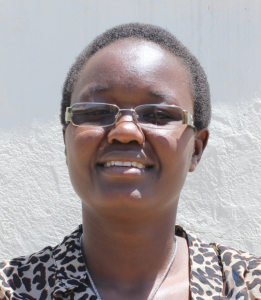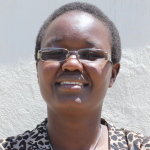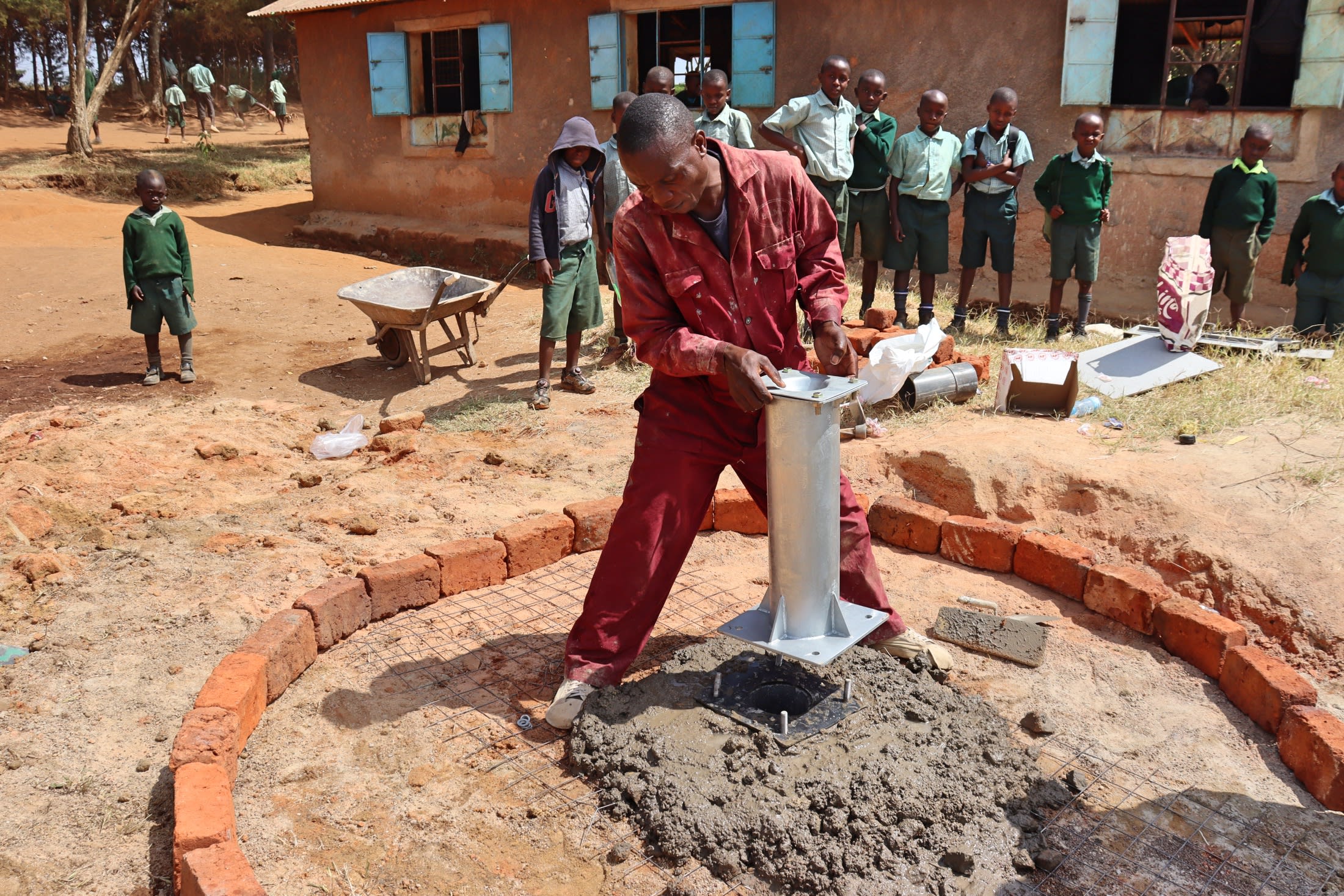Every day, getting enough water for the 853 students and 30 staff at St. Peter's Erusui Primary School is a debilitating struggle.
Students who don't board at the school are tasked with bringing water from home, often from dubious sources. The school has a hand-dug well that doesn't have a pump (seen below), but it often runs dry. Even when it is operational, the water is contaminated and recharges slowly, so it can not provide enough water for the large school population.

When all else fails, students head down a steep, rocky path to the local spring (which is shared with community members, who force the students to wait until they've finished collecting water). It is a treacherous journey, and often, they fall on the way, hurting themselves and damaging water containers.

By the time they acquire water, they're already exhausted, and their classes haven't even begun. Or, perhaps even worse, their classes have started without them. And still, somehow, the school never has enough water.

Peter N., one of the school's students (pictured above at the school's dug well), explained the problem from his perspective. "As a boarder in school, I feel like am not comfortable. The day scholars bring water from home, but it's not enough, and this makes us go to the spring to fetch water. We waste a lot of time fetching water, and this has affected our performance a lot. I feel like we are not in school to learn, but to fetch water, and this makes me sad."
Mr. Stanislaus Luyenji (shown in the photo below) feels for his students. "As a teacher, I drink the same water that pupils bring from home and from the spring, and I also get sick. But I feel more sad for the pupils, because their health is at risk."

The school reports rampant cases of typhoid and diarrhea and spends a lot of money taking students to the hospital.
But Mr. Luyenji knows the water crisis impacts more than just the students' health. "At the same time, [students] waste a lot of time fetching water, [more] than studying. I feel sad for them because they get tired and sometimes miss classes. At the same time, I [can't] teach because the students are exhausted and tired from carrying water. This affects my performance and that of the students, too."
A new borehole well will provide reliable water so that no one will have to leave school grounds when they should be in class. Clean water will improve the students' health. Hopefully, Peter will feel like he is at school to learn.
What We Can Do:
New Well
We conducted a hydrogeological survey at this school and the results indicated the water table beneath it is an ideal candidate for a borehole well. Due to a borehole well's unique ability to tap into a safe, year-round water column, it will be poised to serve all of the water needs for this school's large population, even through the dry months.
The school will help collect the needed construction materials such as sand, rocks, and water for mixing cement. They will also provide housing and meals for the work team, in addition to providing local laborers. We will complement their materials by providing an expert team of artisans and drilling professionals, tools, hardware, and the hand-pump. Once finished, water from the well will then be used by the school’s students and staff for drinking, handwashing, cooking, cleaning, and much more.
Handwashing Stations
There is currently nowhere for students to wash their hands after using the latrines or before eating lunch, let alone the water to do so.
The student health club will oversee the two new handwashing stations we will provide, and make sure they are kept clean and in working condition. The club leaders will fill the handwashing stations with water daily and make sure they are always supplied with a cleaning agent such as soap or ash.
VIP Latrines
We will construct two triple-door latrine blocks using local materials that the school will help gather. All of these new latrines will have cement floors that are designed to be easy to use and to clean. And with a rain tank right on school property, there should be enough water to keep them clean.
Training on Health, Hygiene, COVID-19, and More
We will hold a one-day intensive training session with students, teachers, and parents. This training will cover a wide range of topics including COVID-19 symptoms, transmission routes, and prevention; personal and environmental hygiene; and the operation and maintenance of the rain tank, latrines, and handwashing stations. There will be a special emphasis on handwashing.
Our team of facilitators will use a variety of methods to train, including participatory hygiene and sanitation transformation, and asset-based community development. We will initiate a student health club, which will prepare students to lead other pupils into healthy habits at school and at home. We will also lead lectures, group discussions, and provide illustrative handouts to teach health topics and ways to promote good hygiene practices within the school including handwashing and water treatment. We will then conduct a series of follow-up trainings before transitioning to our regularly scheduled support visits throughout the year.
We and the school strongly believe that all of these components will work together to improve standards at this school, which will help lead to better student academic performance and will help unlock the opportunity for these students to live better, healthier lives.

 Borehole Well and Hand Pump
Borehole Well and Hand Pump
 Rehabilitation Project
Rehabilitation Project





































